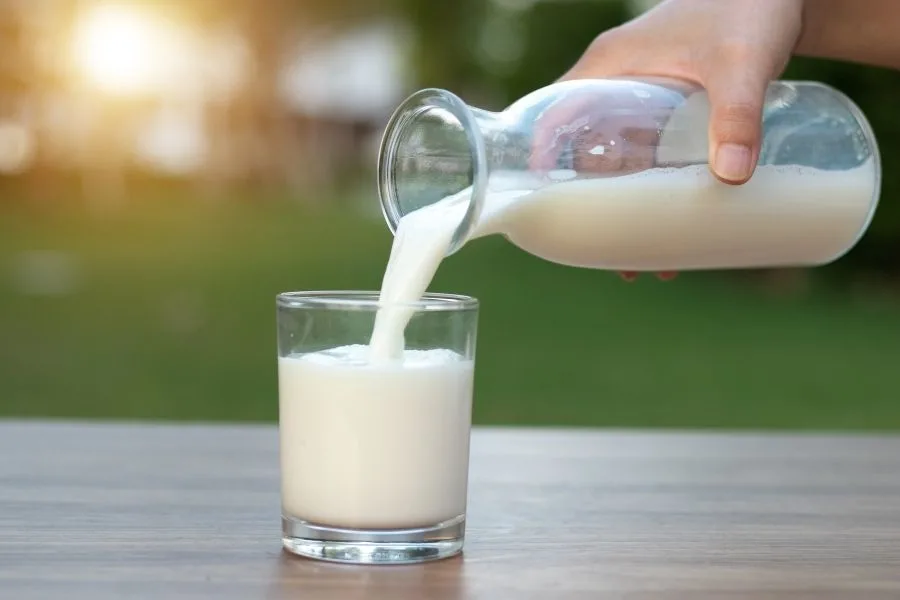Are you wondering if feta cheese can be melted? Have you ever attempted to melt feta cheese and found an odd result? If not, you may find these questions simply odd and ridiculous! After all, why wouldn’t you be able to melt feta cheese? It is cheese, isn’t it?
Well, you may want to take a look at what we’ve discovered about melting feta cheese before stuffing it in your grilled cheese sandwich or spreading it over your homemade pizza. The answer to this burning question may, indeed, surprise you!

Does feta cheese melt ?
No, feta cheese does not melt. This is because feta has very high acidity and a high moisture level.
You may be surprised to know that not all cheeses melt, at all. And, just to clarify, when we say melt, we mean transform into that soft, ooey gooey, stringy goodness that pulls apart on a stunning grilled cheese sandwich!
In fact, it isn’t just feta cheese that will never melt. You also will not have any luck trying to melt creamy goat cheese, Indian paneer, Italian ricotta, Cypriot Halloumi, or Mexican cotija cheese.
But, how can that possibly be? Why would some cheeses like feta not melt while others like mozzarella run down the sides of a pizza? Read on to find out.
Read also: Blue Cheese VS Feta
Why doesn’t feta melt ?
If you’ve ever tried to melt feta cheese, goat cheese, or any other crumbly, watery cheeses, you have certainly realized at some point that it just will not happen. But, why is that? Does that make these beloved cheeses not real cheeses at all?
Absolutely not! Feta cheese is most definitely still a cheese even though it doesn’t melt. The only reason it can’t transform into melted goodness is because of its very high content of water and acid. That’s right! Feta cheese is full of both.
You may be interested to learn that, for every 150 grams of your typical salty feta cheese, a whopping 83 grams of it is just water! That means over half of feta’s weight is that same stuff you drink all day long to stay healthy!
And, for every 100 grams of your typical feta cheese, a pretty shocking 19% of it is acidic. That’s because feta cheese is packed with pantothenic acid – also known as Vitamin B-5. Pantothenic acid is what gives feta cheese its characteristic tang and pop! It’s also part of why feta is not able to melt; pantothenic acid has a very high melting point!
Keeping both feta cheese’s high water and acid content in mind, it’s no wonder that it is not able to melt! This watery combination – stuffed with tons of calcium, by the way – makes feta cheese resistant to both melting and flowing freely as other cheeses do.
Read also:Is Feta Cheese Vegetarian ?
What does feta do when heated ?
Normally, when cheeses like gouda, mozzarella, or cheddar are heated they melt forming the stringy, flowy liquid that we all love to love. But, when the high-water feta cheese is heated, it simply cannot melt.
So, what happens to it?
Well, when heated, feta cheese simply gets soft. That’s right folks, crazy chemical reaction here. Crumbles of heated feta cheese will simply begin to form one dense mass of soft, buttery fluff. If you bake it or fry it, feta cheese can even begin to form a nice, nutty browning on the outside.
In fact, if you want a truly delicious feta flavor, make sure you do keep it in the oven to brown. This will not just make it nice and warm; it’ll enhance its tangy, briny taste!
How to (sort of) make feta melt
Although there is no real way to make feta cheese melt, there are some ways to make it seem like it’s melty. Why would anyone want to do this? Well, maybe you’re making yourself an artisanal, Mediterranean grilled cheese sandwich mixed with all different cheeses, and feta cheese is the pièce de résistance.
But now, you know the feta cheese within those pieces of homemade bread is not going to melt! What a disaster! Well, not just yet!
As long as you mix your feta cheese with cheeses that will melt well, you’ll get that soupy, stringy deliciousness you desire! Just keep in mind that feta cheese is quite overpowering in its flavor profile. So, you might want to mix it with gouda cheese, muenster cheese, or mozzarella cheese, since each is quite plain in comparison to the almighty, salty feta!
Another way to sort of make feta cheese melt into the stringy goodness you so desire is to double boil it. What this means is you must place a pot filled with feta over a pot of boiling water. Pour some whole fat milk in with the cheese, mixing constantly.

After awhile, you’ll get a sort of feta cheese sauce to which you must add your thickening agent (cornstarch, for example). Once you’ve thoroughly mixed this all together, your feta cheese will somewhat resemble a bowl of melty cheese! Feel free to dip, scoop, or pour away!
For a quicker “melty” feta cheese recipe, simply do the same thing we discussed above in the microwave, instead!
Benefits of non-melting feta cheese
Although the fact that feta cheese does not melt seems like an all-around bummer, this is not entirely the case.
If you’ve ever had to grill a chunk of cheese, bake a ball of cheese, or crumble some onto a salad, melting cheeses like cheddar and mozzarella just won’t do the trick.
That’s where feta comes in!
Feta cheese is perfect for fried, baked, or grilled cheese balls – or even cheese-stuffed chicken – because it’s able to maintain its shape and viscosity. That way, you won’t end up with a sticky, burnt mess all over your pan, grill, or bottom of your oven!
Feta cheese is also an excellent sprinkling cheese for salads or as a topping for a Greek dish! Since it’s so soft and crumbly, non-melting feta cheese will make an easy addition to any meal that needs a punch of salty goodness!
Conclusion
Not all cheeses are melting cheese and feta is one good example. That doesn’t mean is not good, it just means that will not work on pizza, pasta, or other recipes that require cheese to be melted.
This is a good reason why feta cheese is used in cold recipes and present in most salads when you need a nice cheese.

